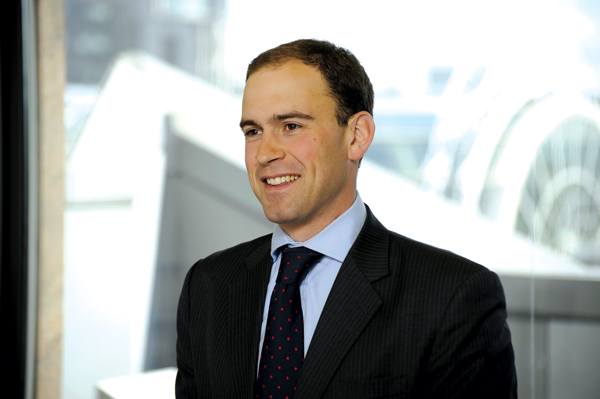It took some time for the #MeToo movement to reach the legal profession but it is here now, heralding an increasingly intense debate about the treatment of women in the profession.
The recast Payment Services Directive and its proposed transposition into Greek Law
Directive 2015/2366/EC, known as the recast Payment Services Directive (PSD2), entered into force on 12.01.2016 and requires Member States to ensure compliance with its provisions by 13.01.2018. According to its Preamble, the PSD2 seeks to achieve alignment with the developments in the market and the emergence of new technologies and types of payment services, to ensure consumer protection against security risks and to establish transparency in the sector. Apart from that, the amendments brought by the PSD2 were needed to modernize the previously applicable PSD (Directive 2007/64/EC) towards the integration of the internal market for safe electronic payments. Continue reading “The recast Payment Services Directive and its proposed transposition into Greek Law”
A to Z of Arbitration
A is for award! It is essential to start with the end result in mind; the purpose of any arbitration is to secure an award that you can ratify and enforce against the respondent’s assets. An unenforceable award is worthless and unfortunately in the Gulf you have a greater chance of ending up in this position than in other parts of the world. It is therefore important to take legal advice at the outset about where you want to get to at the end of the arbitration and whether there is a clear road to the money! This will include advice on any issues in the contract documents which could affect the enforceability of an award that you secure at the end of arbitration such as the requisite authority of the person who signed the contract containing the arbitration agreement or the validity of the arbitration agreement. Continue reading “A to Z of Arbitration”
The rise of third-party due diligence in Turkey
Third-party due diligence systems are receiving renewed interest in Turkey. An increasing number of companies are adopting compliance programs to create an ecosystem of compliance for both antitrust and anticorruption issues. The companies are opting to invest in these systems due to active local authorities, increasing digitalisation, and to have an adequate control on compliance risk management. A successful compliance program creates an ecosystem of control and scrutiny that inspires a company’s corporate culture. It forms notions of compliance and ethics and affects employees’ behaviours. The compliance program itself consists of a number of tools, one of which is third party due diligence. Continue reading “The rise of third-party due diligence in Turkey”
The Legal Services Act ten years on – still waiting for the Big Bang
It has been ten years since the Legal Services Act gained Royal Assent, ushering in the most liberal services market in the world by some margin. Given that span of time, and the five years since the most radical elements of the act came into force with the regime for alternative business structures (ABS), it is natural to ask if it has lived up to billing. Continue reading “The Legal Services Act ten years on – still waiting for the Big Bang”
Nowhere to run
A key session of the Commercial Litigation Summit tackled aspects of global investigations from an in-house and external adviser perspective. Clifford Chance partner Judith Seddon began by looking at deferred prosecution agreements (DPAs) and self-reporting. She posed the question: ‘How effective are DPAs in changing corporate behaviour? From a corporate-governance perspective, does the failure-to-prevent offence focus the board’s attention on the importance of ensuring it has adequate or reasonable procedures?’ Continue reading “Nowhere to run”
The cutting edge
During Apple’s earnings conference call in May, chief executive Tim Cook discussed the company’s long-running and bitter dispute with Qualcomm, a company that manufactures internal components for the iPhone.
Joining the dots to manage data risk
The In-House Lawyer’s earlier survey with DAC Beachcroft in the Spring 2017 issue, ‘Managing Risk: The In-House View’ identified these key points:
AG Integrate in action
Innovation in legal services remains the buzzword of the moment, yet what clients require from their law firms remains the same – a true understanding of both their legal and business needs. Firms continue to explore the cost and time-saving benefits that AI and legal technology bring, as well as employing flexible resourcing models as a way to offer greater choice and control, yet what clients demand more increasingly is a collaborative, integrated approach to legal service delivery.
The new front
As expected – or feared – implementing the incoming General Data Protection Regulation (GDPR) is a mammoth task for some companies. ‘It is all-encompassing,’ says Karen Kerrigan, chief legal officer at equity crowdfunding firm Seedrs. ‘The advantage of being a small business is that you can involve all the other departments. Frankly, I would be terrified of GDPR if I was at a large business, because you have to take a much more decisive risk-based approach in terms of what you are physically able to look at. We were able to sit down with our development team, our marketing team and our investments team, and go through every single one of their activities and the service providers they were using.’
Internal affairs
The final session of the 2017 Commercial Litigation Summit sought the views of senior in-house counsel on managing disputes. Chairing the panel, Stephen Moriarty QC of Fountain Court Chambers kicked off the debate by tackling the perception of an in-house department as a cost centre – effectively, a necessary evil – citing the CV of Hausfeld’s Laurent Geelhand as an anecdote. Prior to joining the law firm, Geelhand was the European general counsel (GC) of Michelin, credited with turning ‘Michelin’s European legal department into a profit centre by systematically pursuing actions against third parties’. Moriarty asked the panel whether that is a realistic approach to running an in-house team. Continue reading “Internal affairs”
The new space race
When President John F Kennedy stood before Rice University on 12 September 1962 and boldly declared that not only would the US be the first country to land on the moon, but they would do it before the end of the decade, he captured the imagination of a generation. Continue reading “The new space race”








